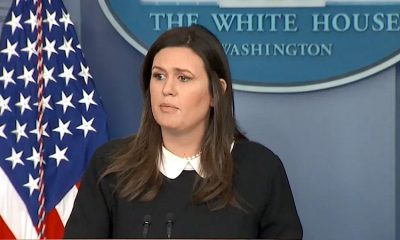U. S. News
We might soon see very high prices again as OPEC+ is likely to cut oil production early next month

Rising prices and skyrocketing inflation this year were additionally fueled by the high gas and energy prices caused mostly by the Russia-Ukraine war and rising demand after the world reopened following the COVID-19 pandemic. During the summer, gas prices reached all-time highs, and Americans were paying record-high gas prices, forcing them to look for transportation alternatives.
Since then, gas prices have significantly declined. Gas prices have been going down for weeks, and just before Thanksgiving, another decline made transportation more affordable for many travelers. Industry experts believe that gas prices will continue the downward trend, and Americans will hopefully see even lower gas prices by Christmas, when the country usually reaches the travel peak. That, however, might change sooner than we think.
OPEC and non-OPEC producers, an influential energy alliance known as OPEC+, will convene in Vienna, Austria, on Dec. 4 to decide on the next phase of production policy. The biggest oil producers are expected to take steps to fight the current low gas prices, which are mostly caused by China’s low demand for oil because of the COVID-19 wave the country is going through. This meeting may alter experts’ current predictions of gas prices in the near future.
Current gas prices are expected to go further down because investors fear a possible recession that is becoming more likely to happen next year. Another major concern is the Western price cap on Russian oil. The Group of 7 nations is in talks to cap Russian oil at $65 and $70 a barrel, while some countries push for an even lower cap, somewhere between $30 and $40.
Earlier this month, Goldman Sachs downgraded its oil price forecasts due to a weakening dollar and lower demand in China. China is one of the largest oil consumers in the world, and due to the COVID-19 uncertainty, lockdowns, and closures in the country, the fear of low oil demand further dropped oil prices.
But according to RBC commodities chief Helima Croft, oil markets could face more volatility soon as there’s a “significant chance” of OPEC+ slashing its crude production quota again, despite the looming European Union ban on Russian oil.
“It’s going to be an incredible week for the oil market,” she told CNBC, noting that OPEC will meet on Sunday and that the EU’s embargo on seaborne imports of Russian oil takes effect on Monday. “I still think it’s up for grabs, but there’s certainly a significant chance they do another cut,” she said, adding that there was “no expectation” for the cartel to increase production.
Although there is a lot of uncertainty about what might happen in the upcoming months, OPEC and its allies will very likely cut production to increase prices. This year, oil supplies have been low, and another production cut will most certainly heavily impact prices. Also, millions of barrels of oil will be taken off the spot markets if EU countries finally decide to implement the Western price cap on Russian oil.
According to Jeff Currie, global head of commodities at Goldman Sachs, the medium-term oil outlook for 2023 was “very positive” and the bank plans to “stick to our guns” with a $110-a-barrel Brent crude forecast for next year. If oil prices reach $110 a barrel per Currie’s forecast, Americans will have to cope with very high gas prices next year again, similar to those we saw during the summer.
-

 Local News4 days ago
Local News4 days agoFormer publisher of National Enquirer reveals 2018 hush money discussions with Governor Sanders
-

 Local News2 weeks ago
Local News2 weeks agoThe Quorum Court of Saline County rejects the Arkansas Abortion Amendment
-

 Local News2 weeks ago
Local News2 weeks agoA mobile clinic for opioid health opens in Malvern
-

 Local News2 weeks ago
Local News2 weeks agoIncome-based scholarship program launched by Reform Alliance
-

 Local News2 weeks ago
Local News2 weeks agoOpvee, an additional opioid overdose reversal medication, helps in the fight against the opioid crisis
-

 Local News2 weeks ago
Local News2 weeks agoApplications for the fifth cohort of the Women’s Economic Mobility Hub are being accepted
-

 Local News1 week ago
Local News1 week agoSen. Cotton: During the Malinowski raid, ATF officers were not wearing body cameras
-

 Local News2 weeks ago
Local News2 weeks agoArkansas State Capitol passes resolutions on cryptocurrencies






Leave a Reply